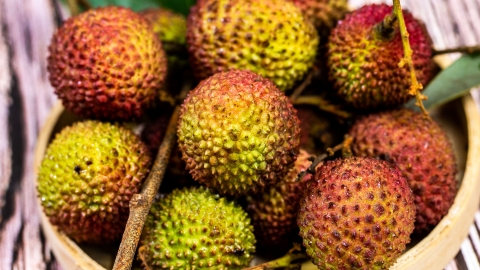Can eating lychee treat dizziness caused by low blood sugar?
Generally speaking, whether eating lychee can treat dizziness caused by low blood sugar needs to be determined based on the severity of the patient's symptoms. If hypoglycemic symptoms occur, prompt medical attention or consultation with a healthcare professional is recommended to avoid delaying treatment. Detailed analysis is as follows:

When dizziness caused by low blood sugar is mild, eating lychee can help alleviate discomfort to some extent. Lychee contains relatively high levels of glucose and fructose, which are quickly absorbed by the body, replenishing blood sugar and raising blood glucose levels, thereby reducing dizziness caused by low blood sugar. In such cases, a small amount of lychee consumption can partially meet the body's demand for sugar and help the body recover more quickly to a normal state.
If the dizziness caused by hypoglycemia is severe, simply eating lychee may not provide effective treatment. Severe hypoglycemia may be accompanied by more noticeable symptoms such as confusion and fatigue. At this time, the body requires rapid and substantial sugar replenishment, but the sugar content in lychees is limited, and the process of eating them may carry risks such as choking due to dizziness, making it difficult to effectively and promptly correct blood sugar levels. More direct methods of sugar supplementation are required.
When using lychees to relieve mild dizziness caused by low blood sugar, consumption should be controlled—only a few pieces at a time are needed, avoiding excessive intake all at once. Fresh lychees should be selected and eaten promptly after peeling to prevent spoilage. When experiencing dizziness, chew slowly to avoid choking. If symptoms do not improve or worsen after consumption, other sugar-replenishing measures should be taken promptly, and medical attention should be sought. Individuals with significant blood sugar fluctuations should be cautious about relying on lychees to regulate blood glucose levels.







